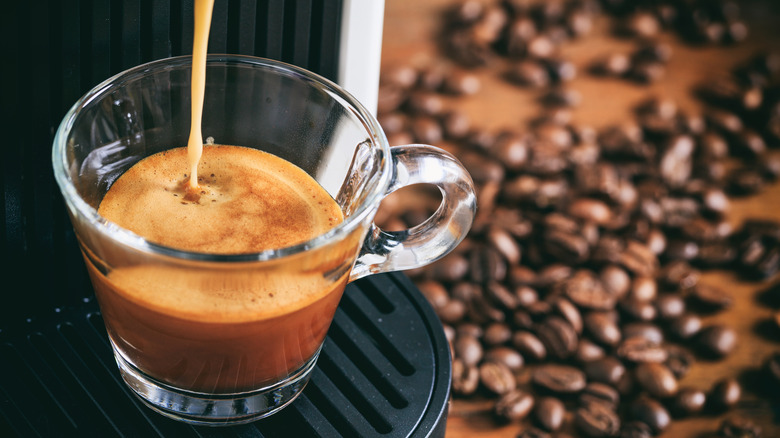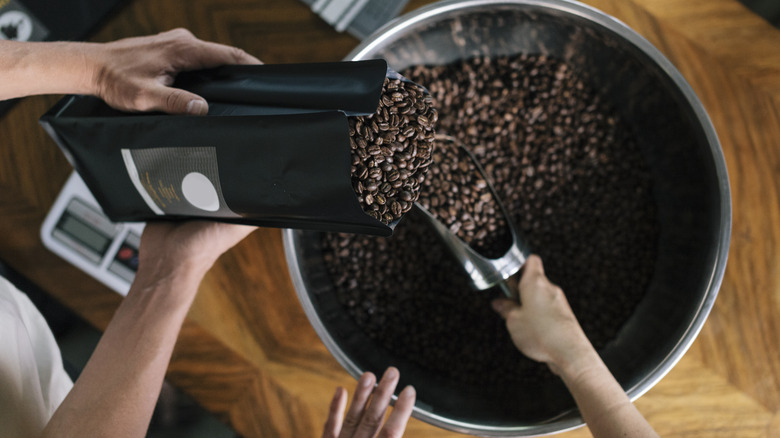The Best Time Frame To Brew Coffee After The Roast Date
Coffee connoisseurs know that there are a lot of variables that can get in the way of a perfect cup of coffee, from the shape of your ceramic mug to the way you're grinding your beans. Trying to keep all of the coffee brewing tips in mind before you've even had your first cup can be tough, but paying attention to the roast date is your crucial first step in brewing the freshest, tastiest cup. According to the professionals, the specific window of time that your beans are at their freshest is one-to-three weeks after the roast date, but they should still good for up to three months. So ignore the expiration date, which is probably later than when the bean's freshness starts to decline, and pay attention to the roast date instead.
In order to understand why this is the golden window of fresh-brewed opportunity, it's important to understand what coffee beans are and how they're harvested. Coffee beans don't start out as dried pellets of future productivity — they begin life on a tree, hidden inside something called a coffee cherry, which is, you guessed it, a bright red cherry-looking fruit. Harvesters pick the cherries once they've ripened, remove all of the pulp, and dry them out in the sun. Once the coffee beans are pulp-free and dry, they are hulled, milled, and exported in their raw, green forms. This is the version of the coffee bean that most roasters start out with.
The secret shelf-life of roasted coffee beans
Coffee beans are exported unroasted because this ensures that they will have a longer shelf-life and are easier for roasters to manage. Once the roasters throw the sturdy, little green beans into the hot seat, the freshness countdown begins. There is a science to why coffee tastes better from freshly ground beans, and it largely has to do with oxygen and moisture — the same things that impact the freshness of your beans. Once the beans are roasted, all of the deliciously earthy flavors awakened and infused through the heat will immediately begin to diminish as carbon dioxide is released from the bean in a process called "off-gassing."
It's important to note that you may not want to dig into a freshly roasted bag of coffee that's under a week old because it's still releasing a lot of carbon dioxide, which means it hasn't reached the perfect flavor profile yet. Once you hit the one-week mark, you're free to brew to your heart's content. But remember, every time you expose your beans to oxygen, they lose a little bit of that flavor complexity. To ensure a tasty cup of joe every time, brew within that three-week freshness window and keep your beans stored in an air-tight container so that they last until the next batch.

